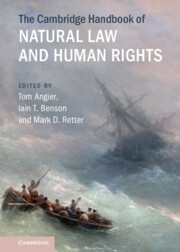The closed material procedure (CMP) – ever since its introduction to English law – has been subjected to a very significant amount of academic criticism. But over time, the CMP has become increasingly settled as a fixture in English law. Whilst the existence of the CMP per se in English law seems settled, the extent of its deployment is not. Given this development, it seems important and constructive to examine whether – and the conditions under which – a CMP can ever be normatively justified, all things considered. Two propositions will be made. First, a common argument for the CMP – the maximising argument – does not demonstrate that the CMP is normatively justified, all things considered, for it does not sufficiently mitigate the two main objections to the CMP, based respectively on the principles of natural justice and open justice. Secondly, where the clear advantage variation is deployed – ie when a CMP allows the excluded party to make use of material that: (a) clearly advantages him; and (b) would otherwise be unavailable for the court's consideration – both objections are sufficiently mitigated. In such a case, the CMP is normatively justified, all things considered. This constitutes a limited normative case for the CMP.


